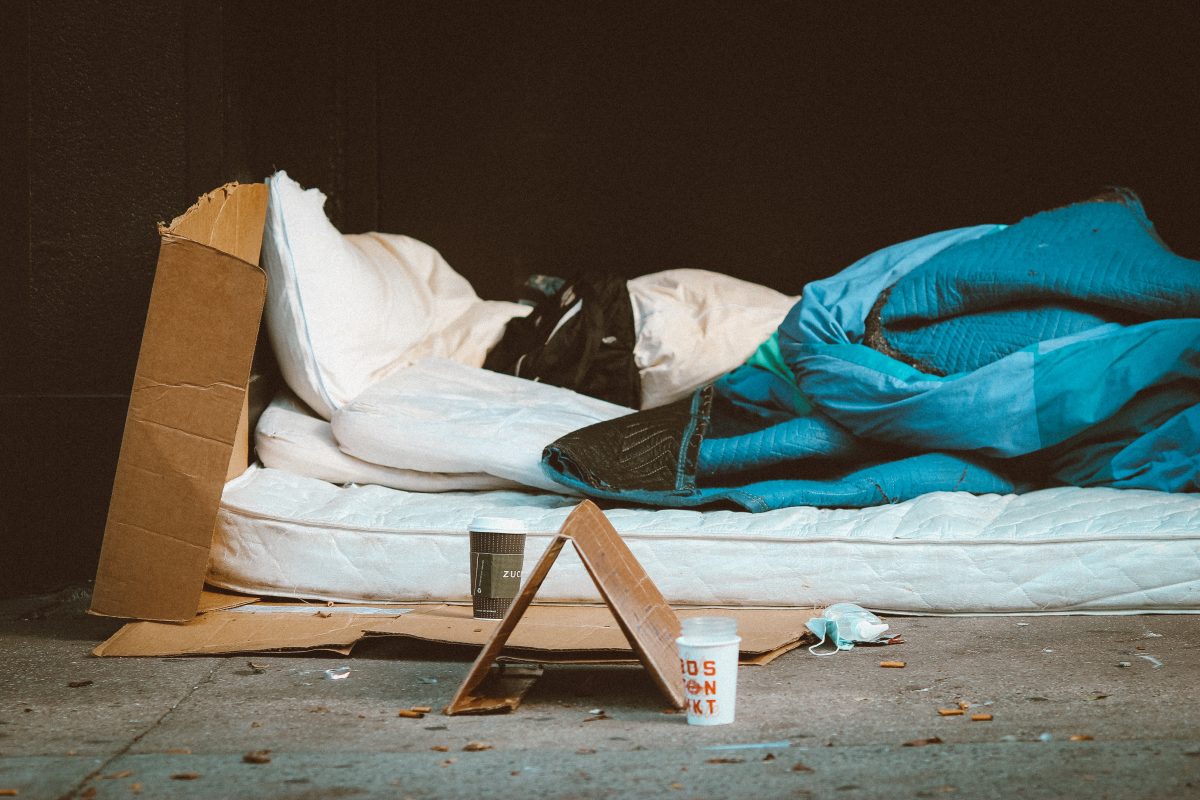The Community Alliance for the Homeless (CAFTH) is encouraging a collaborative approach in its second annual “Symposium on Ending Homelessness” on August 10th at Rhodes College.
CAFTH said in a statement that it seeks collaboration with stakeholders to build solutions addressing poverty, health, violence, and inequity as they intersect with healthcare, criminal justice, veteran homelessness, and affordable housing systems.
Julie Meiman, the continuum of care planning director for CAFTH, spoke with the Flyer about the state of homelessness in Memphis and Shelby County, how the public can help, and the importance of collaborative solutions.
Memphis Flyer: What are the goals of the symposium and how it aims to address homelessness in Memphis and Shelby County?
Julie Meiman: This is only the second annual symposium, so last year when we created it, it was still in that post-Covid, bringing everyone back together in person phase. We really saw that the nonprofit agencies and organizations that we work with, and even our government partners, were still experiencing that isolation and we needed to create an opportunity for people to come together to have a day of discussion and forward thinking about our community.
The theme this year is “Collaboration To Impact Homelessness.” We have plenty of evidence to demonstrate that communities around the country, which are making really great strides towards ending homelessness, are doing that through cross-sector collaboration. That is one of the reasons we are inviting mayoral candidates, to tell us their ideas on how they would end homelessness in Memphis and Shelby County because it will take cross collaboration from all of those different sectors in order to achieve our goals.
How do you all plan on emphasizing this collaborative effort among stakeholders during the event?
As the lead agency, we are doing system-level work. There are many agencies doing incredible work providing direct services, but we are sort of looking at this big picture. We collect all the data for the community around homelessness, and we also do policy and advocacy work. So we’re going to be bringing all of those pieces together.
At the symposium itself, we have different tracks. One is on affordable housing. We have tools for providers, best practices, what people can do to sustain their housing. We’re also looking at how can we support people who have really complex intersectional challenges.
We’re looking at housing providers, engaging with landlords, the healthcare system. We are urging people to continue to contribute to the data so we can better understand what the needs are. We are engaging with the housing authority to look at the role of housing vouchers. There’s just a lot of different elements that have to be pulled together, because it’s an understatement to say that homelessness is a complex issue — we all know it’s a complex issue — but we really want to focus on those different areas that make up that complex picture.
What are some of the challenges that you have seen Memphis and Shelby County face when it comes to addressing homelessness?
Two of them are mental health and substance abuse. Those are the most common I think that are almost to the point of being stereotypical in people’s minds. Those are certainly real challenges that contribute to that complex picture.
We have strong partners in the mental health service provider community, as well as substance abuse, that are a part of our consortium that we engage with. Where we know we have work to do is reaching out to populations who, for example, are undocumented, or who have difficulty accessing service because of language issues. We know there are people out there who need extra support to get the help that they need, and as a community we can develop better support for those people.
One of the other areas we’ve focused really hard on in the last year is youth, especially older youth ages 18-24 years old. Being homeless can be kind of invisible. It can be difficult to see, because youth often will sleep on somebody’s couch for months at a time. It’s just a less visible population, so we’ve worked hard to focus on youth in our community who are experiencing homelessness.
While symposium registration is closed to the public, what can people do to actively address homelessness and spread awareness?
I think another misconception, or when people come up with what the face of homelessness looks like, a lot of times we’re picturing that person standing at the corner holding a cardboard sign. Or the person standing outside the store as we’re leaving, asking for money. That might be a part of the picture, but there’s a much more pervasive level of homelessness that we don’t see every day. If people can, they should donate to those nonprofit agencies that are serving people in homelessness. There are partners on our website. People can support in other ways. They can give food, there are agencies out there feeding people who are without housing, they can donate clothing. We have a big event coming up in January called Project Homeless Connect, and there will be opportunities there to volunteer and to donate as well. There are a lot of giving opportunities in that way, and if people want to really get involved, and become a part of the discussion, I would encourage them to join the Memphis and Shelby County Homeless Consortium.
